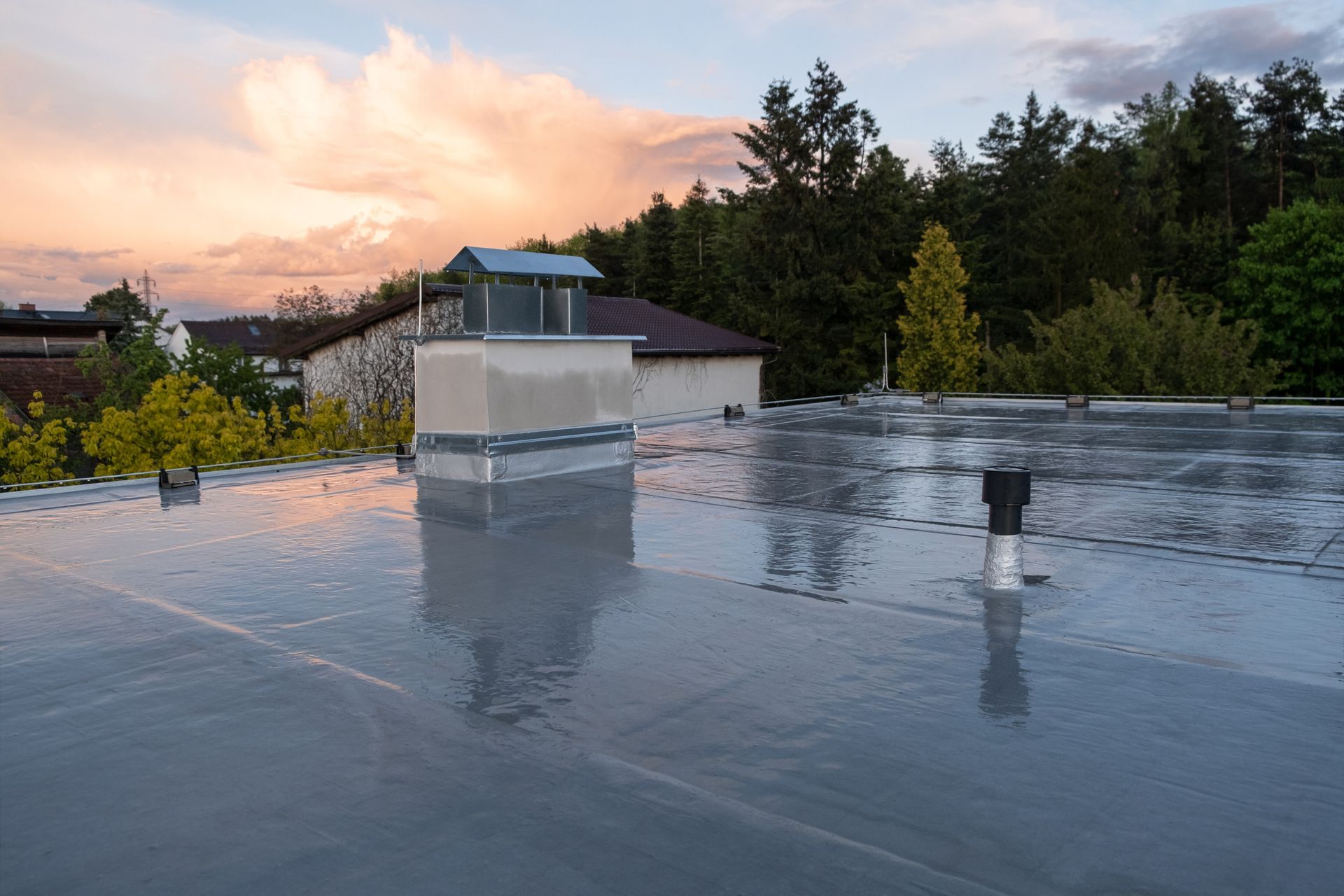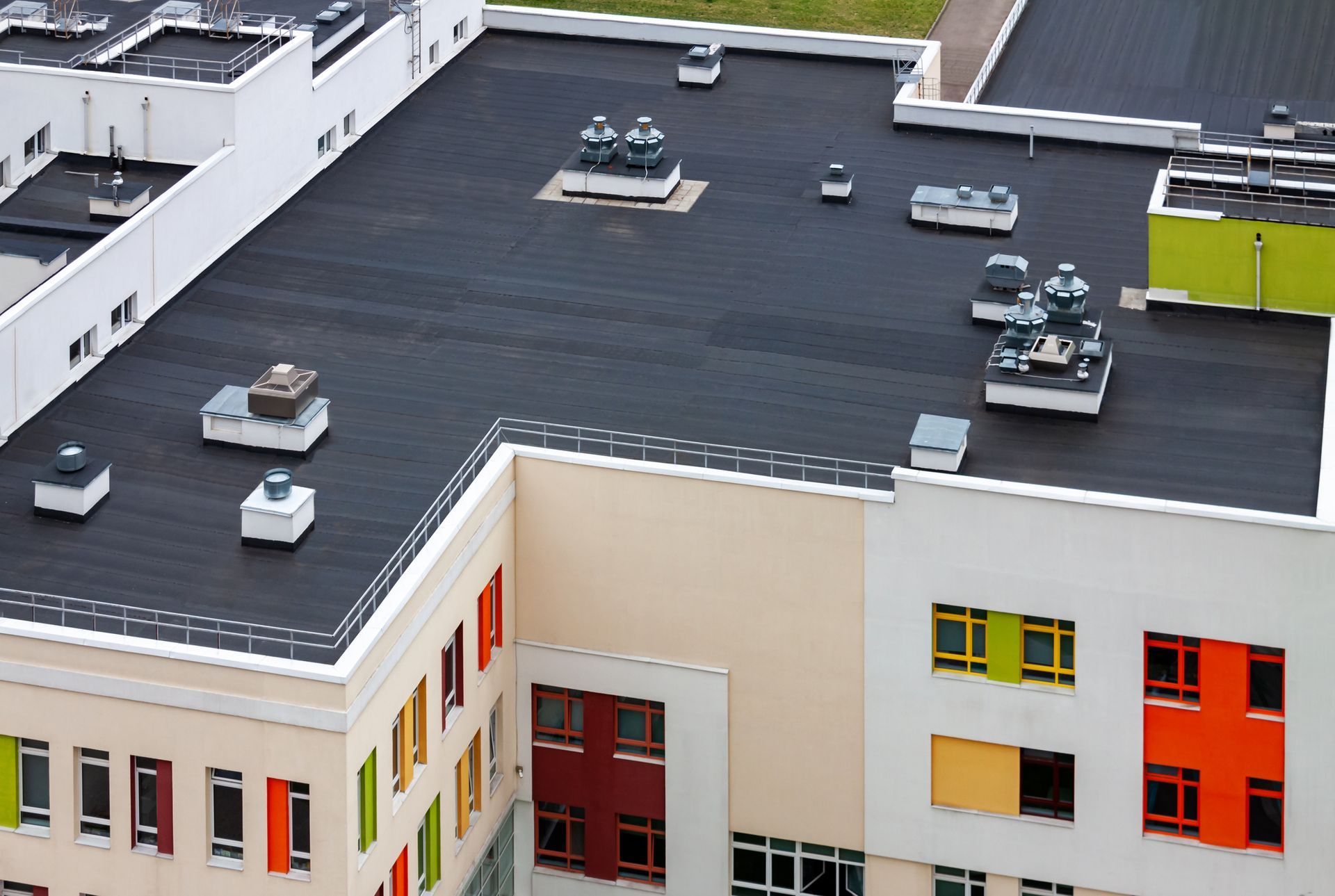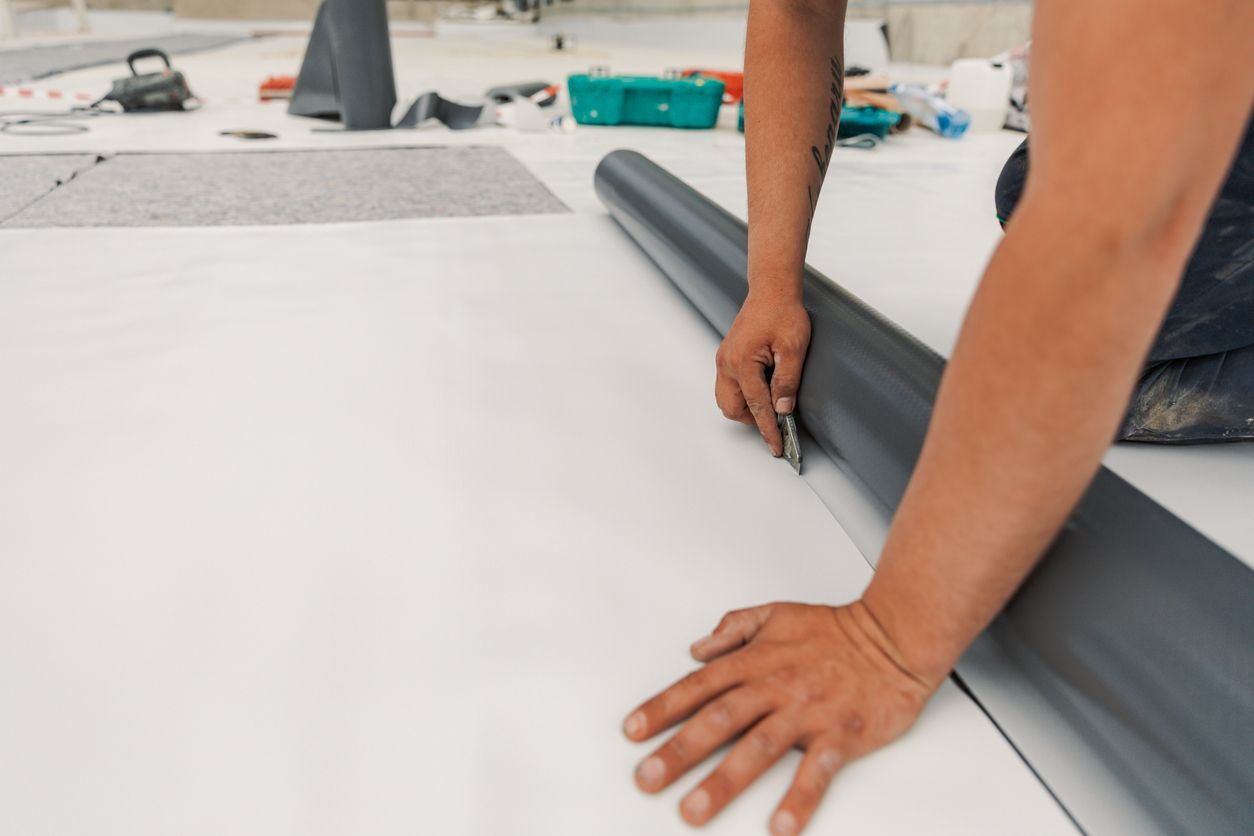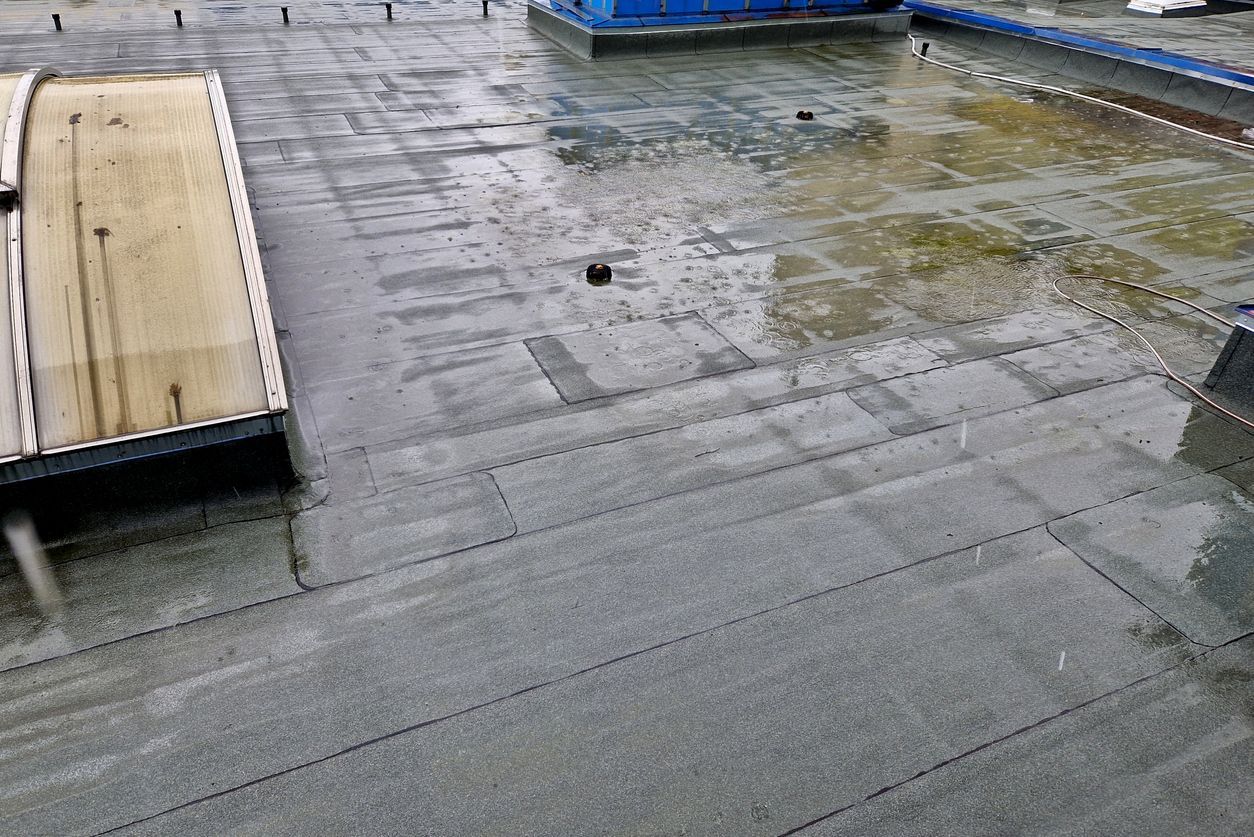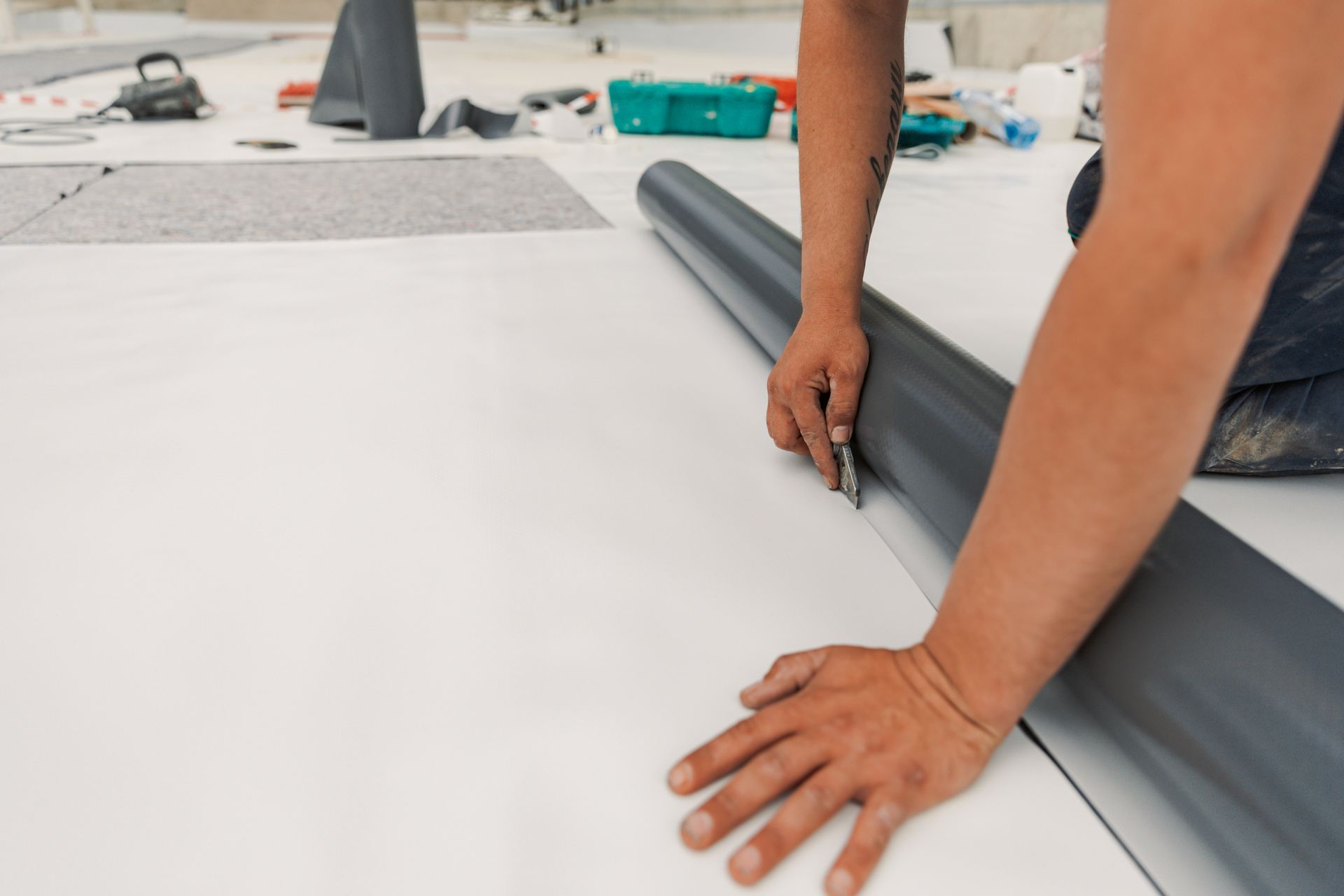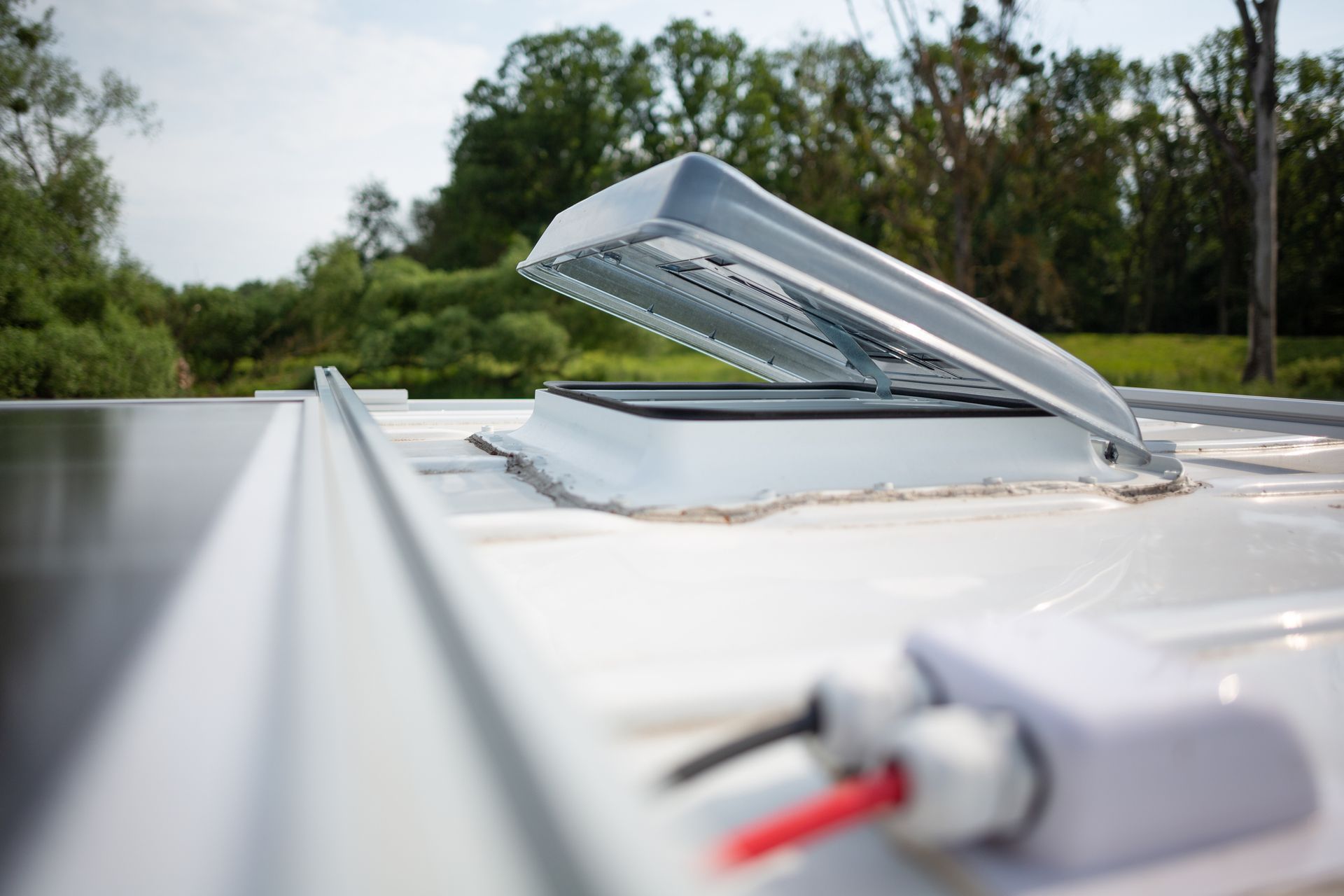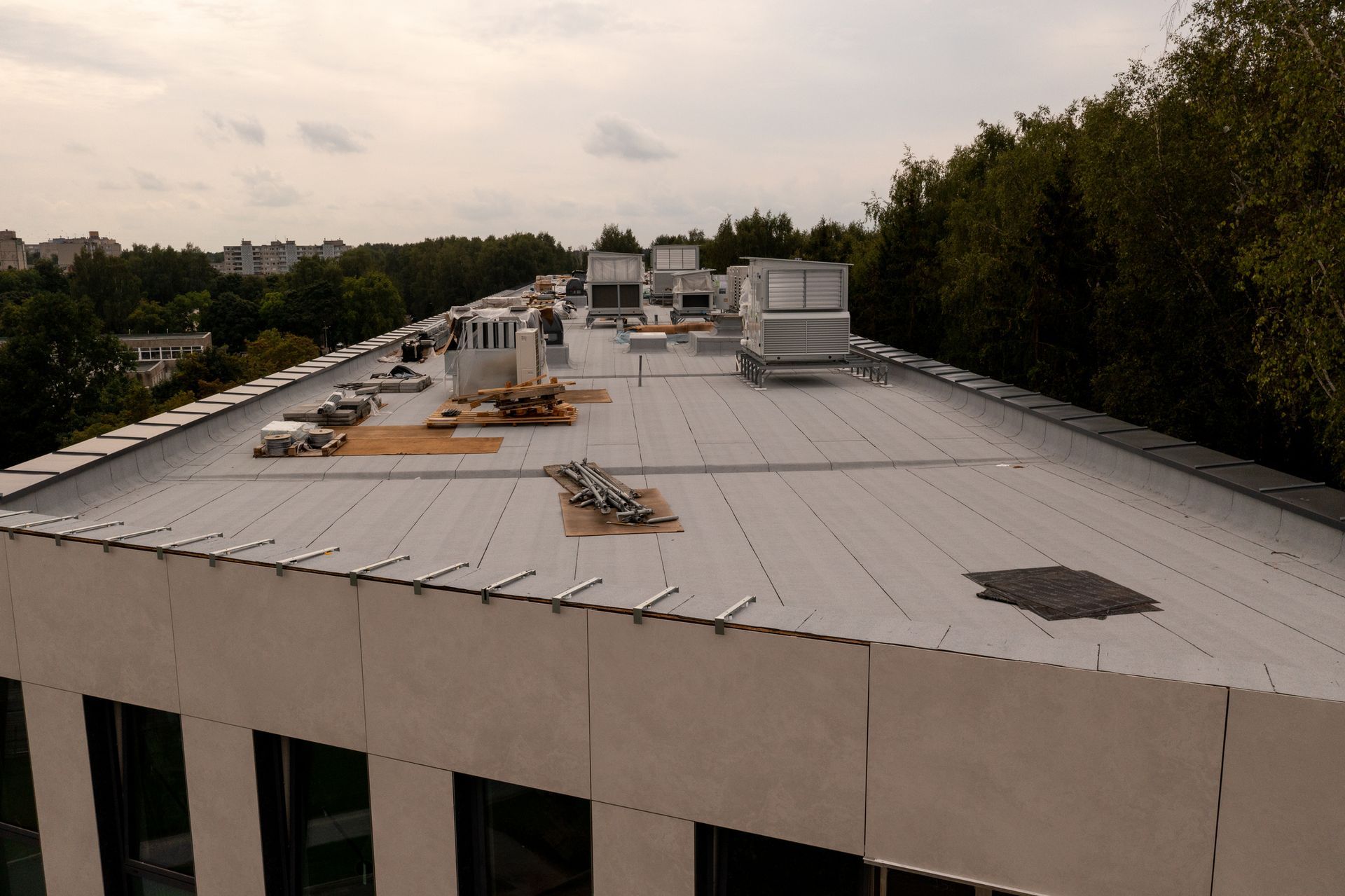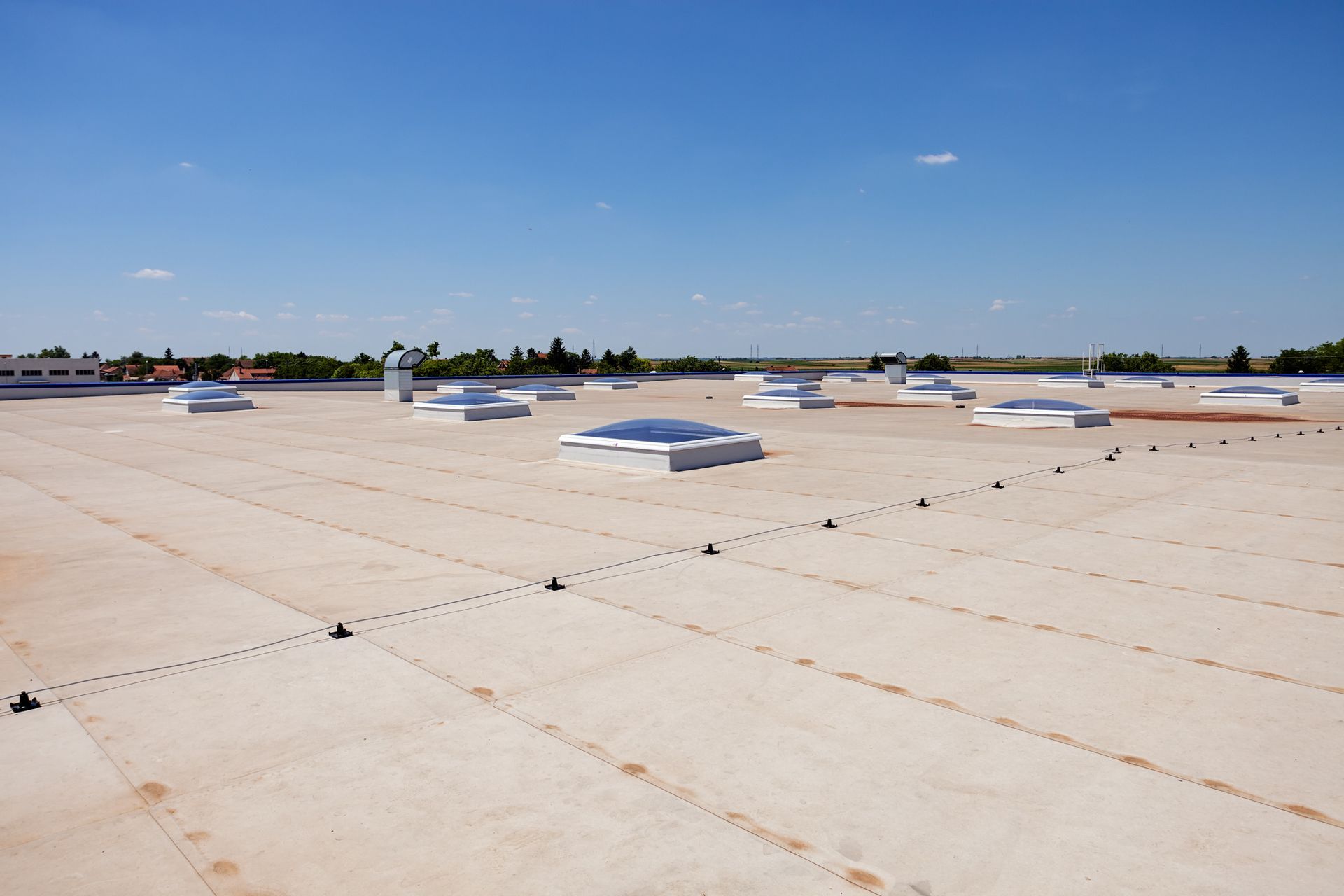Roof Coatings Make a Big Impact. Which One is Right for Your Project?
Roof coatings can have a great impact on extending the life of your roof, but it’s important that you choose the right coating, so that you don’t end up replacing it a few months later. The first step in deciding which coating is right for your particular project, is to conduct a little research, so that you are able to make the most informed choice.
Roof coating factors
The first thing you need to do, is be sure that your roof is structurally sound and that it can support a good coating. Without that structural integrity, your roof may need to be completely replaced rather than simply coated over. Before being able to choose the right kind of coating, you should be aware of the type of climate the building is situated in. A dry climate might indicate an acrylic coating, while a wet climate may point more toward silicone coating.
The slope of your roof is also a determining factor, because roofs which are pitched very steeply require several passes of coating, which means extra labor time. You should be aware if there are any ponding conditions on your roof, because for example, silicone can provide a barrier against ponding, while acrylics don’t handle it quite as well. If your building will be exposed to extremes of temperature, and chemical or ultraviolet radiation, you’ll need a coating which can resist all these.
Silicone roof coatings
One of most flexible types of roof coatings is silicone-based, because they have the ability to breathe with a building as it undergoes changes of temperature, and experiences expansion and contraction. Silicone coatings also provide good protection against ultraviolet radiation and some other atmospheric exposures, to keep the roof surface underneath well shielded.
Acrylic roof coatings
These are one of the most inexpensive options to choose, partly because they are water-based in composition, and partly because they’re extremely easy to install. They are very friendly to the environment, and have become widely popular with building owners because of their affordability and ease of maintenance. It may be necessary however, to apply multiple coatings of an acrylic-based product to ensure adequate protection for your roof.
Polyurethane coatings
Coatings which are based in polyurethane provide excellent protection against ponding water, and have proven to be extremely durable. They are also very flexible, having the ability to contract and expand right along with a building as it undergoes changes of temperature and other atmospheric conditions. They are not as effective against ultraviolet exposure as silicone roofs are, so in areas which receive high ultraviolet radiation, there are better choices.
Asphalt coatings
Asphalt coatings are products which have a bituminous base, and have a solvent added in to the mix, so as to make application on the roof a little easier. Other additives can impart greater thickness, durability, and strength. One of the strongest attributes of asphalt coatings is that they have good solar reflectivity, and do not absorb radiation to the extent that other coatings might.
SPF coatings
SPF coatings are often considered an insulation rather than a true coating for your roof, because they are applied as a foam which solidifies into a long-lasting barrier against weather conditions and sunlight. In most cases, an SPF coating will also have a urethane coating applied on top of it for additional protection, and for waterproofing. The hallmark of this type of roof coating is really its capacity for greater insulation.
At All Seasons Roofing, LLC , we have nearly 15 years experience providing flat roofing systems installation and repair services to clients across Central Missouri. Contact us now to learn how we can help with your project.
The post Roof Coatings Make a Big Impact. Which One is Right for Your Project? appeared first on All Seasons Roofing.
